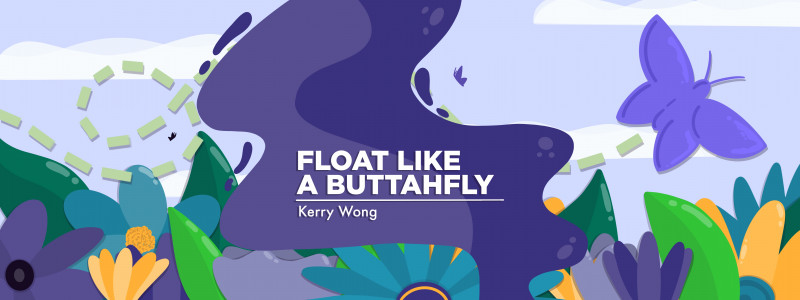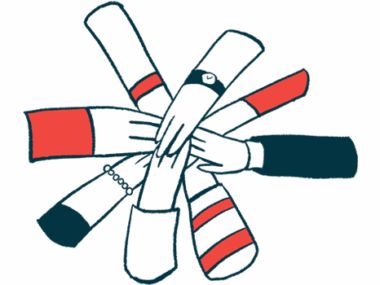How acute understanding of chronic pain can improve lives
This pain awareness month, let's distinguish between the ways that we hurt
Written by |

How do I know that my hip is getting better? My back is hurting more.
I know that sounds like a bad joke, but it really falls into the category of “funny ’cause it’s true.” It’s not actually funny, but laughter is a great coping mechanism. Sometimes I can’t tell if one symptom is getting better or if it’s just being overshadowed by another that’s getting worse. That’s the way it goes for many people living with a multisystem disease like sarcoidosis.
Sarcoidosis stems from systemic inflammation that can lead to pain throughout the entire body. It can also develop in any individual organ or system. For me, that includes my lungs (painful wheezing, especially in cold weather), nervous system (small fiber neuropathy, causing burning and prickling sensations), skin (erythema nodosum, causing painful lumps on my lower legs), and joints (arthritis).
As if that weren’t enough, I’ve also been diagnosed with chronic fatigue syndrome, chronic migraine, degenerative disk disease, endometriosis, fibromyalgia, gastroesophageal reflux disease, herniated disks, irritable bowel syndrome, osteoarthritis, multiple radiculopathies (pinched nerves), rheumatoid arthritis, sacroiliitis, and Sjögren’s syndrome, each of which causes pain in its respective area. I’m not exaggerating when I say that I live in pain every waking moment of every day.
So when it comes to Chronic Pain Awareness Month, I’ve got a lot to celebrate. OK, maybe not celebrate. But chronic pain is something I’m acutely aware of, so I recognize the need for a month like this one.
To many, it may seem unnecessary — after all, everyone has experienced pain at some point. You walk by a coffee table and stub your toe. You take a sip of too-hot coffee and burn your tongue. You get a paper cut. Or a flu shot. Or fall and break a bone. Surely everyone knows what pain is. So what’s with this awareness month?
But that’s just the thing. Everyone has experienced acute pain, so they think they understand. But chronic pain is something else entirely.
The difference between acute and chronic pain
Acute pain is a reaction to a specific stimulus, like that stubbed toe or coffee burn. It’s how your body tells you that something’s wrong. Once the problem subsides, the pain fades away, and you go about your day.
Chronic pain, on the other hand, is pain that lasts six months or longer. It’s pain that lingers even after the injury has healed. Sometimes, there’s no initial injury at all. Chronic pain can be caused by conditions such as fibromyalgia, arthritis, and sarcoidosis, or even have no identifiable cause.
Just last year, the World Health Organization added chronic primary pain to its International Classification of Diseases (ICD-11), with its own diagnostic code. It’s heartening to see the medical community begin to catch up, but we’ve still got a long way to go.
The pain we feel can hit anywhere, anytime, at any intensity, for any duration. It can burn, sting, pinch, cramp, stab, or ache. It can feel like we’re stuck in a vise, getting electric shocks, or are going to burst from the pressure. There should be another word to embody the extremity and severity of chronic pain. It’s not enough to say “it hurts.”
When pain becomes chronic, it can affect every aspect of our lives. It can interfere with sleep, mobility, work, socialization, and even cognitive ability. We can literally be stopped in our tracks with pain so excruciating that we can’t even think. We may try pharmaceuticals, complementary and alternative therapies, lifestyle changes, or all of the above and still not get the relief we need. Naturally, that can affect our mental and emotional well-being, too.
Perhaps worst of all is the impact it can have on our relationships. When those around us don’t understand the difference between acute and chronic pain, they can find it hard to empathize with our situation. They may say something to the effect of, “I get it. I banged my elbow the other day, you know, in that bad spot, and it hurt for a good half-hour!”
As well-intentioned as that may be, they’re really showing just how much they don’t understand the difference. That can lead to frustration on both sides, as we feel that our loved ones are belittling our experience, and they feel like we don’t appreciate their attempts.
That’s why a month like this one is so important. In the short term, better understanding can improve our relationships and our quality of life. In the long term, it leads to steps like code MG30.0 in the ICD-11, recognizing chronic primary pain as a unique condition. That recognition can lead to funding for research, which can lead to better treatments that improve our quality of life, letting us feel like ourselves again.
Note: Sarcoidosis News is strictly a news and information website about the disease. It does not provide medical advice, diagnosis, or treatment. This content is not intended to be a substitute for professional medical advice, diagnosis, or treatment. Always seek the advice of your physician or other qualified health provider with any questions you may have regarding a medical condition. Never disregard professional medical advice or delay in seeking it because of something you have read on this website. The opinions expressed in this column are not those of Sarcoidosis News or its parent company, Bionews, and are intended to spark discussion about issues pertaining to sarcoidosis.







Jerrilyn Howell
Read the book ‘The Way Out’ by Alan Gordon. It references a research study about chronic pain. Pain reprocessing therapy vs usual care, PRT alleviated chronic pain in 50% of study participants.
🦋 Kerry Wong
Sounds promising, Jerrilyn. I've heard good things about PRT. Thanks for the referral.
~🦋
Sybil
Hi Kerry, I just read your note here on the sarcoidosis news letter. I sure do understand what you are going through. I was first diagnosed when I was 50 years old I am now 85. Some days are worse than other but we just can't give up. I have had many surgeries , but I walk no matter how I feel & that helps me. Would you like to be my pen pal , oh I know I am lot older than you just think it over. I wish you the Very Best. Sybil
🦋 Kerry Wong
Yes, Sybil, it always helps to find others to connect with, to know we're not alone, to help each other to not give up. I'm sure you've learned a lot over the past 35 years with this disease ... and seen a lot of changes over the years. I'd love to hear more about it!
~🦋
Robert Fortier
Hi Kerry,
It is rare to see the commentary you have put forward shining a light on Acute vs. Chronic Pain. I have suffered from chronic pain for 23 years but only diagnosed with Stage 2 Sarcoidosis within the last 18 months. I have learned an awful lot over the years but the one thing that dominates my thoughts on the subject is that the health care community in general only has protocols developed to address acute pain. This is literally painfully apparent when you undergo surgery and watch the post surgery pain mgt team not know how to treat your surgical pain as a chronic pain sufferer. I believe that this is a product of under education on chronic pain starting in medical school. I have resorted to demanding a post operative pain mgt plan be developed prior to any surgery.
Thank you for your advocacy on behalf of all of us dealing with Chronic Pain regardless of the root cause.
By the way my most effective pain med is music.
Kind Regards
Bob Fortier
🦋 Kerry Wong
Thank you for your kind words, Bob, and for sharing your experience. I'm sorry you've had to live with chronic pain for so long, but what's great is how you have learned to advocate for yourself and prepare for your procedure(s). That's just the kind of advice that can help others prepare for their own.
And since you mention it, I must ask ... what song/style/artist is most therapeutic for you?
~🦋
Francis Thompson
Another great article! Thank you for your posts. It really does help to realize that we are not alone in our suffering. Also, I share in your frustration in dealing with friends and family. They try to be supportive; however, they cannot comprehend what we are going through. I am glad they don't understand; however, there are times when they believe they know what we need to do; however, they have no basis for their suggestions. They are trying the best they can. In general, they make things worse because they think they have this twisted disease figured out when doctors and other suffers cant put their finger on it. Family members try to help us, however, what they fail to realize is that if there was an easy fix, we should have tried it already. Accept who we are, including our frailty.
As to chronic pain, to me its pain that never stops. The level of pain is not normally the issue, the fact that there is no end causes psychological damage. It builds up with each passing day without relief. I can't discuss this with my family. They can't share in my frustration.
I went to my sarcoidosis doctor about 15 years ago while I was spaced out on so many drugs to counteract the side effects of my Sarcoidosis drugs, could not sleep, could not exercise, could barely walk and was told that everything looks good, keep up the same drug cocktails. That was when I chose to get off the treatment treadmill. If it does not work, I am done. Also, I refused to change more than one drug at a time. This way I could remove it when it proved ineffective. The risk to me was acceptable. I had no life and did not fear loosing it. Luckily, it worked. I reduced my drugs to a minimum and had a better quality of life.
🦋 Kerry Wong
That's really it, Frances - they say "you can't really 'get it' unless you get it." In this situation, the best thing they can do is admit that they don't know what to do ... let us know they're here for us, but let us take the lead in what we know, what we feel, what we need.
~🦋